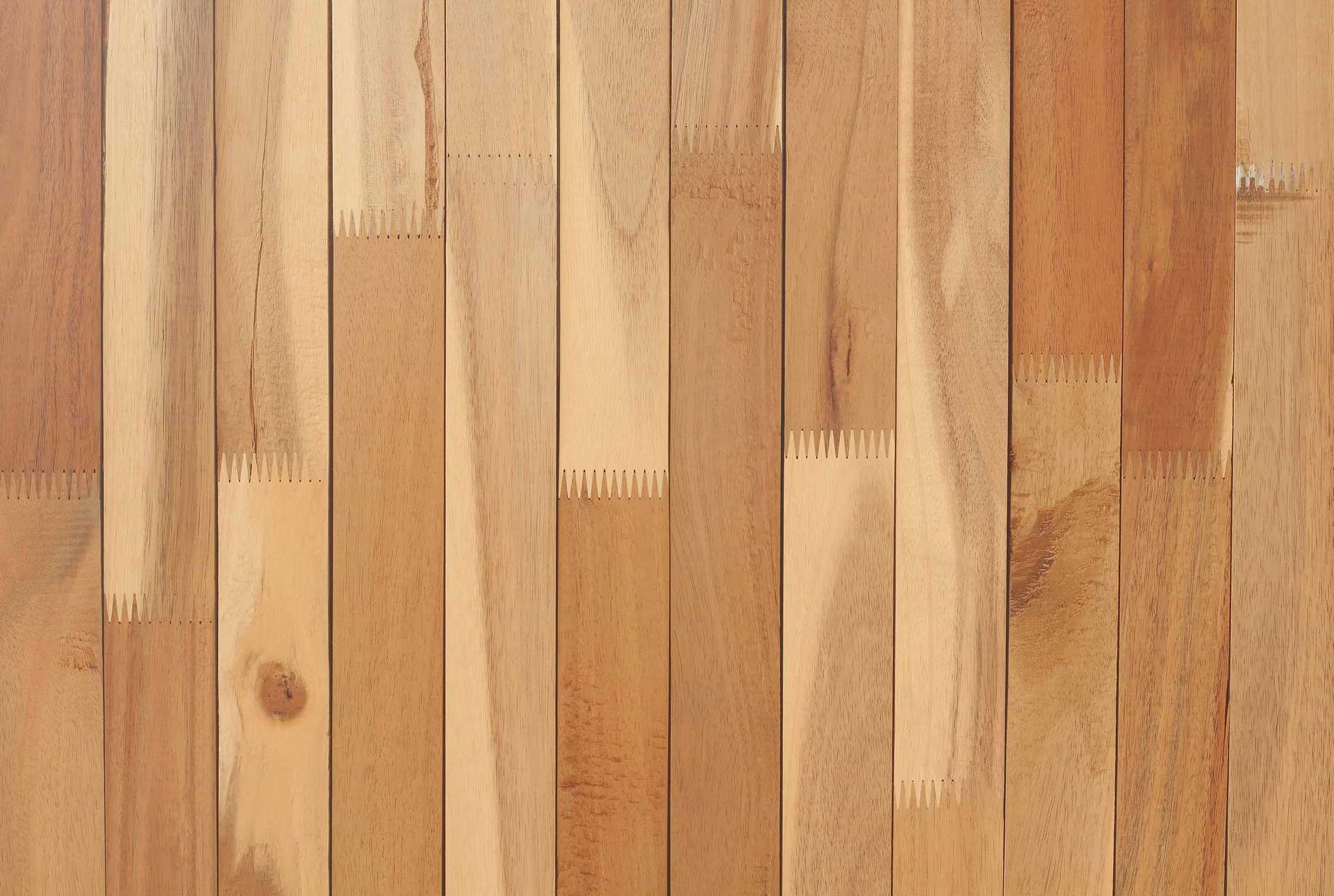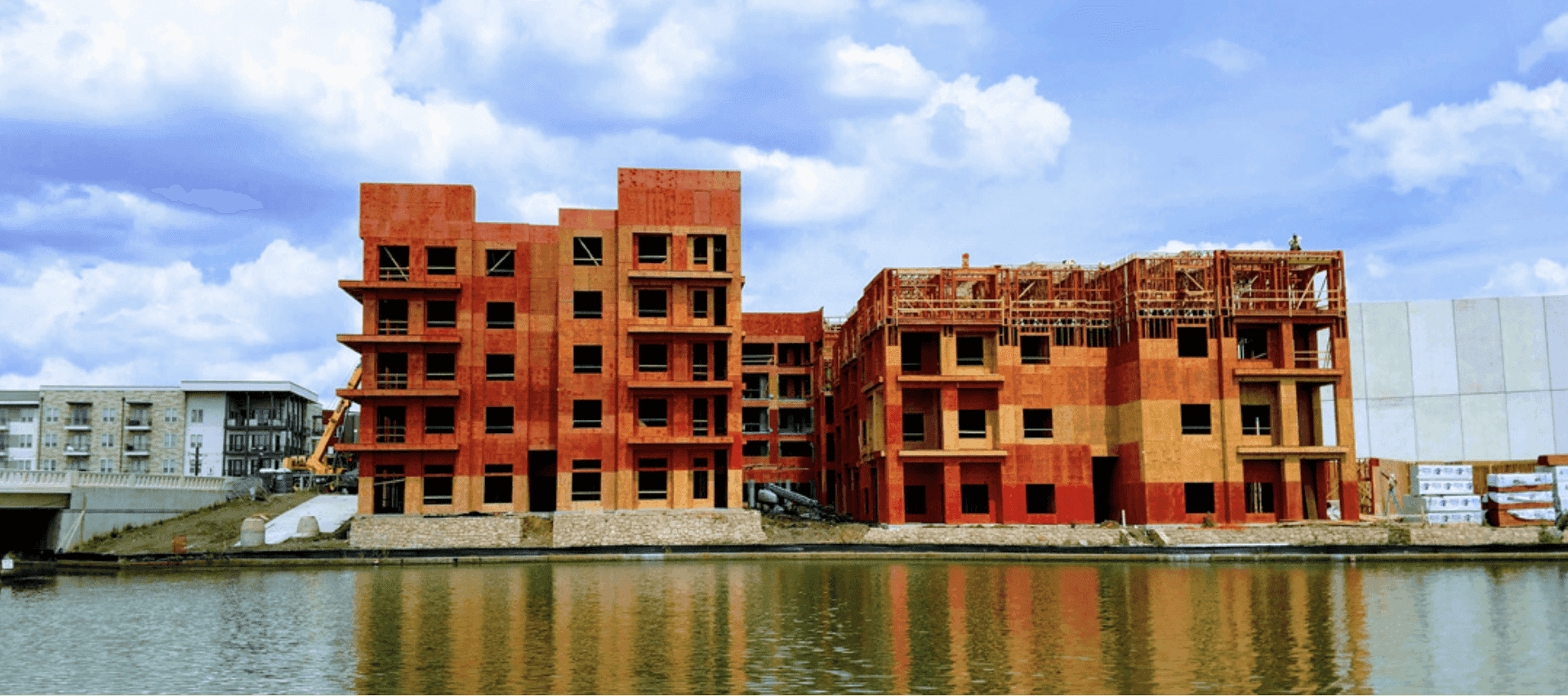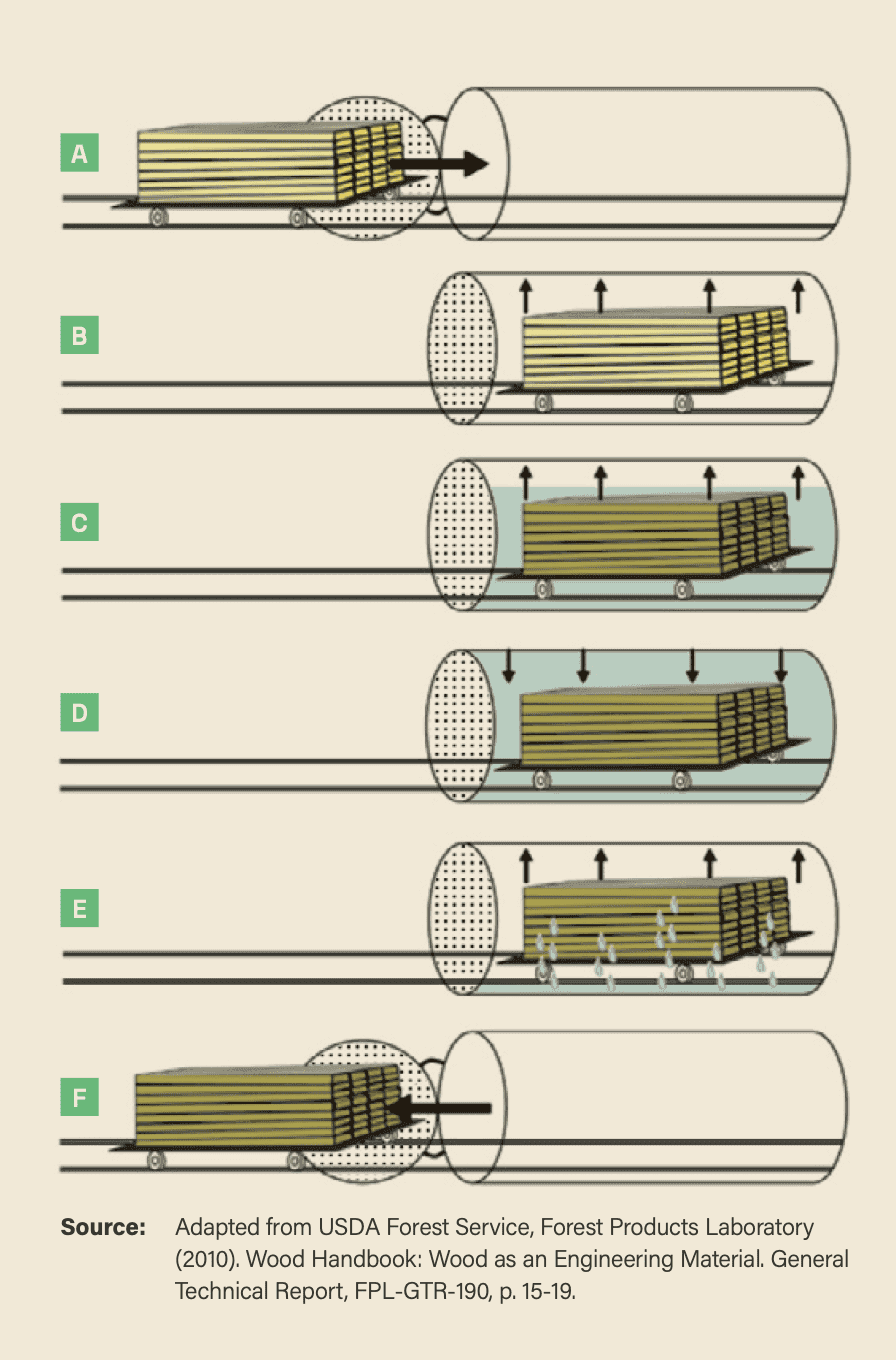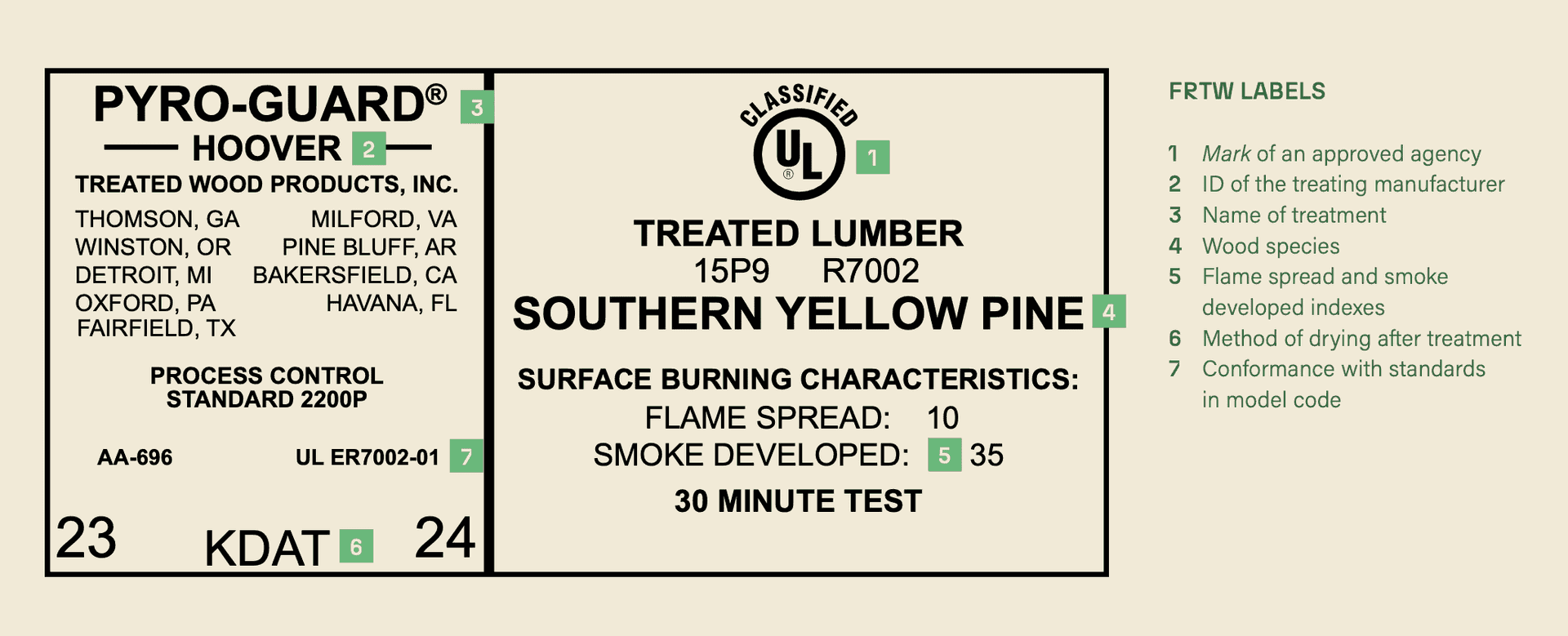How the Southeast Is Embracing Sustainable Neighborhood Design
- Value Added
- Our Products
- Residential - Interior
- Residential - Exterior
- Commercial
- Specialty Commercial
- Branches
- Design Options
- PAY NOW
- Exporting
- Multi-Family
- Vendors
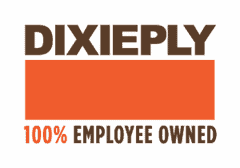
Understand the difference between fire-treatment processes to avoid fines and delays.
Amidst a surge of new suppliers entering the building products market, recognizing code-compliant material versus well-marketed, but incompatible products is increasingly important. This is especially true when considering a source for your next fire-treated wood project. Although outwardly similar, fire-treated products can be manufactured using dramatically different processes. What you select can significantly affect structural integrity during a fire. Here are some key markers to examine when selecting fire-treated material.
When lumber or plywood is pressure impregnated, fire-retardant chemicals are forced into the cellular structure and dried through a process called KDAT (Kiln Dried After Treatment).
Topically fire-treated plywood and lumber can be executed by the supplier, at a distribution center or on a job site. Simply brush, roll or spray the chemical directly to the surface of the wood and adhere to recommended drying period guidelines.
Understanding the difference in treatment is significant when working with cut materials. Once a topically treated product is cut, the edges are no longer considered fire-retardant. Pressure-impregnated material is altered at the cellular level, and will remain fire-retardant regardless of end-user manufacturing. For this reason, it is both self-extinguishing and ignition resistant.
Understanding how fire-treated products are labeled is a simple way to delineate between the processes in a supply house or on a jobsite. These labels should be clearly visible on bundles of material and tested by approved, third-party agencies. Review labels for the following:
The use of fire-retardant products is a life-safety issue, allowing firefighters to enter and residents to exit. Purchasing topically coated material when code-compliant products are required can result in fines and project suspension when code officials begin their inspections.
Dixie Plywood strives to be the leader in wholesale distribution across the Southeast. Our dedication to quality building products is demonstrated by our preferred fire-treatment supplier: Hoover Treated Wood Products.
Operating since 1955, Hoover is the longest standing fire-treatment manufacturer in the US. While many other companies are primarily preservative suppliers who offer fire-treatment, Hoover is a fire-treatment company that also does preservative. They have two proprietary treatment products, while other companies purchase chemicals from separate suppliers.
Hoover is FSC, GreenGuard Gold and NFPA 285 compliant. The NFPA 285 test determines how fire will spread on an exterior wall. It is required on exterior walls in Type I, II, III or IV buildings, greater than 40 feet. Hoover is the only fire-treated company that is NFPA 285 compliant.
Hoover's resources are extensive and exist beyond online data sheets. They offer a full time help line with experts available for questions regarding code, best practices, product SPECs and more. Their substantial library of literature and resources online provides everything you need to navigate the complicated world of code compliance. They are also considered to be the industry leader and standard in fire-treating, presenting the most recognizable name in the market.
Overall, fire-treated plywood and lumber are indispensable in construction projects where fire safety is a primary concern. By incorporating these materials into building designs, architects and builders can enhance the fire resistant qualities of structures, protect occupants and assets, and contribute to safer and more resilient communities. Stand out from your competition by building a reputation for using quality products that can withstand Mother Nature’s disasters.
For additional information, visit https://frtw.com.
Ready to purchase Hoover products from a trusted distributor? Contact our sales team in Atlanta, Charlotte, Dallas, Fort Lauderdale, Houston, Nashville, Orlando, San Antonio or Tampa.
